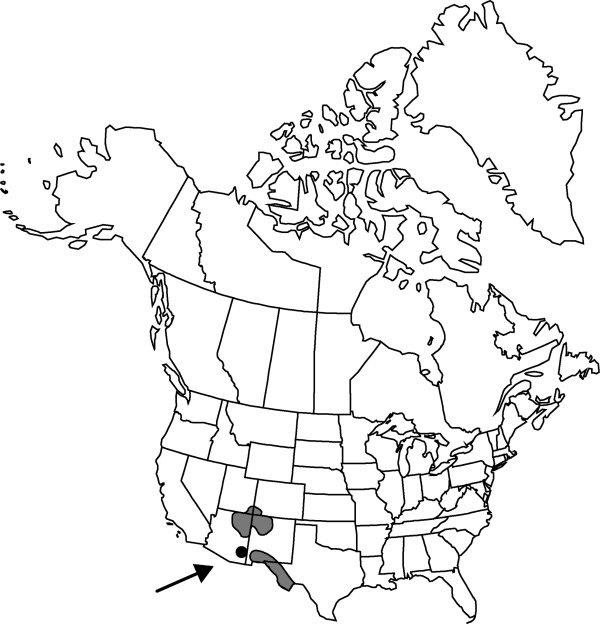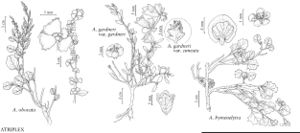Difference between revisions of "Atriplex obovata"
Chenop. Monogr. Enum., 61. 1840.
imported>Volume Importer |
imported>Volume Importer |
||
| Line 62: | Line 62: | ||
|publication year=1840 | |publication year=1840 | ||
|special status=Illustrated | |special status=Illustrated | ||
| − | |source xml=https:// | + | |source xml=https://bitbucket.org/aafc-mbb/fna-data-curation/src/2e0870ddd59836b60bcf96646a41e87ea5a5943a/coarse_grained_fna_xml/V4/V4_730.xml |
|genus=Atriplex | |genus=Atriplex | ||
|subgenus=Atriplex subg. Pterochiton | |subgenus=Atriplex subg. Pterochiton | ||
Latest revision as of 22:00, 5 November 2020
Subshrubs, dioecious, clump forming, mainly 2–8 dm and as wide, woody at base. Stems stiffly erect; branchlets terete. Leaves tardily deciduous, alternate or proximal-most subopposite, shortly petiolate; blade gray green, oblong-ovate to elliptic or orbiculate, 8–30(–35) × 6–20 mm, margin entire or rarely dentate, apex rounded to retuse or obtuse. Staminate flowers yellow, in clusters 2–3 mm wide, borne in panicles 6–30 cm. Pistillate flowers in small, very numerous glomerules in axils of elongated, terminal leafy-bracteate spikes or finally paniculate. Fruiting bracteoles sessile or substipitate, 4–5 × 5–9 mm, base broadly cuneate, margin sharply toothed, apical tooth subtended by 2–6 equal or smaller teeth, faces smooth or rarely tuberculate. Seeds brown, 2.4–2.8 mm.
Phenology: Flowering summer–fall.
Habitat: Fine-textured substrates, with salt desert shrub and lower pinyon-juniper communities
Elevation: 1500-2000 m
Distribution

Ariz., Colo., N.Mex., Tex., Utah, Mexico.
Discussion
Selected References
None.
